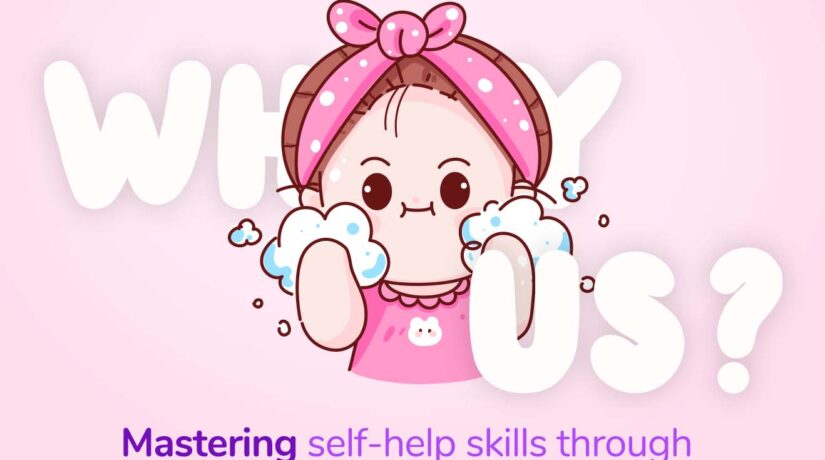Join Autism Support Community in Facebook
Some of the key approaches include,
- Personalized Goals and Treatment Activities: Speech therapists create customized plans tailored to each child’s unique needs and interests, ensuring that they receive the most effective support for their communication development.
- Gesturing: Speech therapists may use gesturing as a technique to help children with autism communicate more effectively.
- Augmentative and Alternative Communication (AAC): AAC is a method that uses alternative communication methods, such as speech-generating devices, to help children with autism express themselves when they are unable to speak.
- Integration of Speech Therapy Activities Across Settings: This approach involves teaching children with autism communication skills in various settings, such as home, school, and other environments, to help them generalize their skills and apply them in different situations.
- Encouraging Functional Communication: Speech therapists focus on helping children with autism develop functional communication skills, such as answering questions, taking turns, and following directions.
- Play-Based Approach: Speech therapy for children with autism often incorporates play as a means to improve their communication skills.
- Involving Family and Caregivers: Speech therapists often collaborate with family members to ensure the best possible outcomes for children with autism, as continuing the lessons at home can help advance their skills and comfort level.
Parents and caregivers can support the speech therapy process by practicing these strategies at home and creating opportunities for learning within routines and activities that children are interested in. By working closely with speech therapists and incorporating these techniques into their daily lives, children with autism can develop better communication skills and lead more fulfilling lives.
Join Autism Support Community in Facebook : https://www.facebook.com/groups/SupportAutism
Applied Behavior Analysis (ABA) therapy is often used to help children with autism improve their communication skills. ABA therapy can address the roots of communication challenges with positive reinforcement, individualized treatment plans, and plenty of practice with skilled behavior analysts and technicians. Speech therapy is frequently recommended in conjunction with ABA therapy to further support children in overcoming speech-related challenges.
Some scenarios in which an ABA therapist might suggest speech therapy for a child with autism include:
- Challenges in verbal communication: Some children with autism may be unable to communicate verbally or may experience extreme difficulty in doing so. In such cases, speech therapy can help them develop and improve their verbal communication skills.
- Mumbling or stuttering: Children with autism may experience challenges such as mumbling or stuttering, especially when under stress. Speech therapy can provide techniques to address these challenges and improve the clarity of their speech.
- Socialization and expressing emotion through speech: Children with autism may face difficulties in socialization and expressing emotions through speech. Speech therapy can help them develop the necessary skills to navigate social interactions and express their emotions effectively.
- Developing verbal tics: Some children with autism may develop verbal tics, which can be addressed and managed through speech therapy techniques.
ABA therapy itself may include components of verbal behavior, which focuses on teaching communication and language skills, but it is not a substitute for speech therapy. Speech therapy provides specialized support for improving speech, language, and communication skills, often through personalized goals and treatment activities tailored to the child’s needs and interests. The combination of ABA therapy and speech therapy can significantly benefit children with autism by addressing both the behavioral and communication aspects of their development.
Some common speech therapy techniques used for autistic children include:
- Gesturing: Teaching children with autism to use gestures as a form of communication, such as pointing, waving, or using sign language, can help them express their needs and emotions more effectively.
- Augmentative and Alternative Communication (AAC): AAC is a method that uses alternative communication methods, such as speech-generating devices or sign language, to help children with autism communicate when they are unable to use verbal communication.
- Functional Communication: This approach focuses on teaching children with autism how to use communication skills in real-life situations, such as at home, school, or in the community.
- Integration of Speech Therapy Activities: This strategy involves incorporating speech therapy exercises into the child’s daily routine and activities, such as listening to teachers, answering questions, taking turns, following directions, and playing appropriately with peers.
- Articulation, Fluency, and Resonance: Techniques that address common speech problems, such as difficulty producing clear sounds, problems with speech patterns and stuttering, and issues with pitch, volume, and voice sound qualities.
- Social Skills: Speech therapists can help children with autism improve their social communication skills by offering social skills groups in addition to one-on-one therapy.
- Feeding and Swallowing Challenges: Some speech-language pathologists are specifically trained to address feeding and swallowing challenges in people with autism, providing treatment plans for improving feeding-related challenges.
Learn about 100% transparency at Bechange Center for Autism @Bangalore



